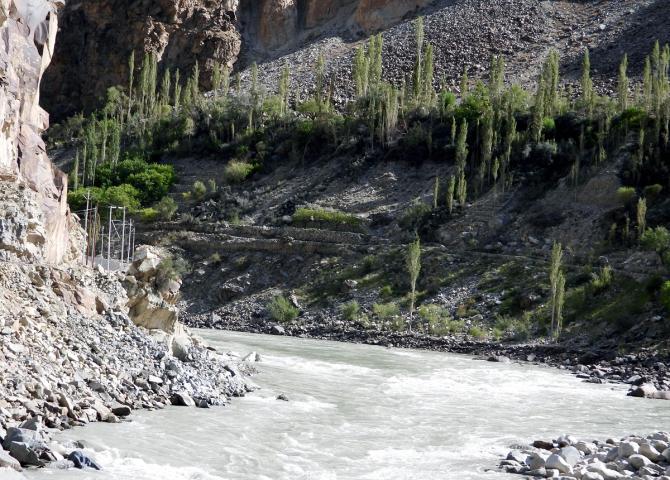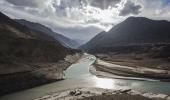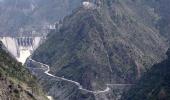India on Thursday questioned the World Bank's decision to appoint a Court of Arbitration and a neutral expert under two separate processes to resolve differences between New Delhi and Islamabad over the Kishenganga and Ratle hydroelectric projects in Jammu and Kashmir.

Last week, India issued a notice to Pakistan seeking a review and modification of the 62-year-old Indus Waters Treaty (IWT) for management of cross-border rivers following Islamabad's 'intransigence' in handling disputes.
"I do not think they (World Bank) are in a position to interpret the treaty for us. It is a treaty between our two countries and our assessment of the treaty is that there is a provision of graded approach," External Affairs Ministry Spokesperson Arindam Bagchi said.
India took the significant step of sending the notice to Pakistan conveying its intent to amend the treaty months after the World Bank announced appointing a neutral expert and a chair of Court of Arbitration to resolve the differences over the Kishenganga and Ratle hydroelectric projects.
New Delhi has been particularly disappointed over the appointment of the Court of Arbitration.
"India's Indus Water Commissioner issued a notice on January 25 for the modification of the Indus Waters Treaty of 1960 to his Pakistani counterpart," Bagchi said at a media briefing while replying to a question on the matter.
"This notice was issued with the intent to provide an opportunity to Pakistan to enter into government-to-government negotiations to rectify ongoing material breach of the treaty," he said.
Bagchi said India called upon Pakistan to notify a suitable date for the commencement of inter-state bilateral negotiations under article 12(III) of the treaty within 90 days.
"I am not aware of a response from Pakistan as yet. I am not aware of any response or comment by the World Bank," he said.
The World Bank's role is procedural and it appoints neutral experts or the chair of the court of arbitration in case of differences between India and Pakistan on issues relating to cross-border rivers.
New Delhi considers the start of the two concurrent processes to resolve the dispute a violation of the provision of the graded mechanism prescribed in the pact and wondered what will happen if the mechanisms come out with contradictory judgements.
"The world bank itself, around five-six years ago, acknowledged the problem of having two parallel processes. Our interpretation and assessment is that this is not in consonance with the provisions of the treaty and hence we have been talking about a graded approach," Bagchi said.
The spokesperson said India's position on the matter has not changed at all.
"I do not know whether the World Bank has changed its position on it," he said.
India has not cooperated with the Court of Arbitration.
Under the pact, any differences need to be resolved under a three-stage approach.
However, in the cases of Kishenganga and Ratle hydroelectric projects, the World Bank started two concurrent dispute redressal processes at the insistence of Pakistan that India felt was a breach of the IWT, according to sources.










 © 2025
© 2025